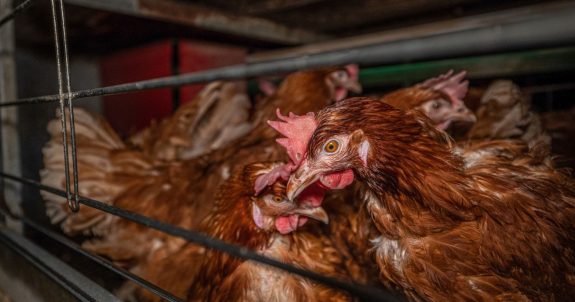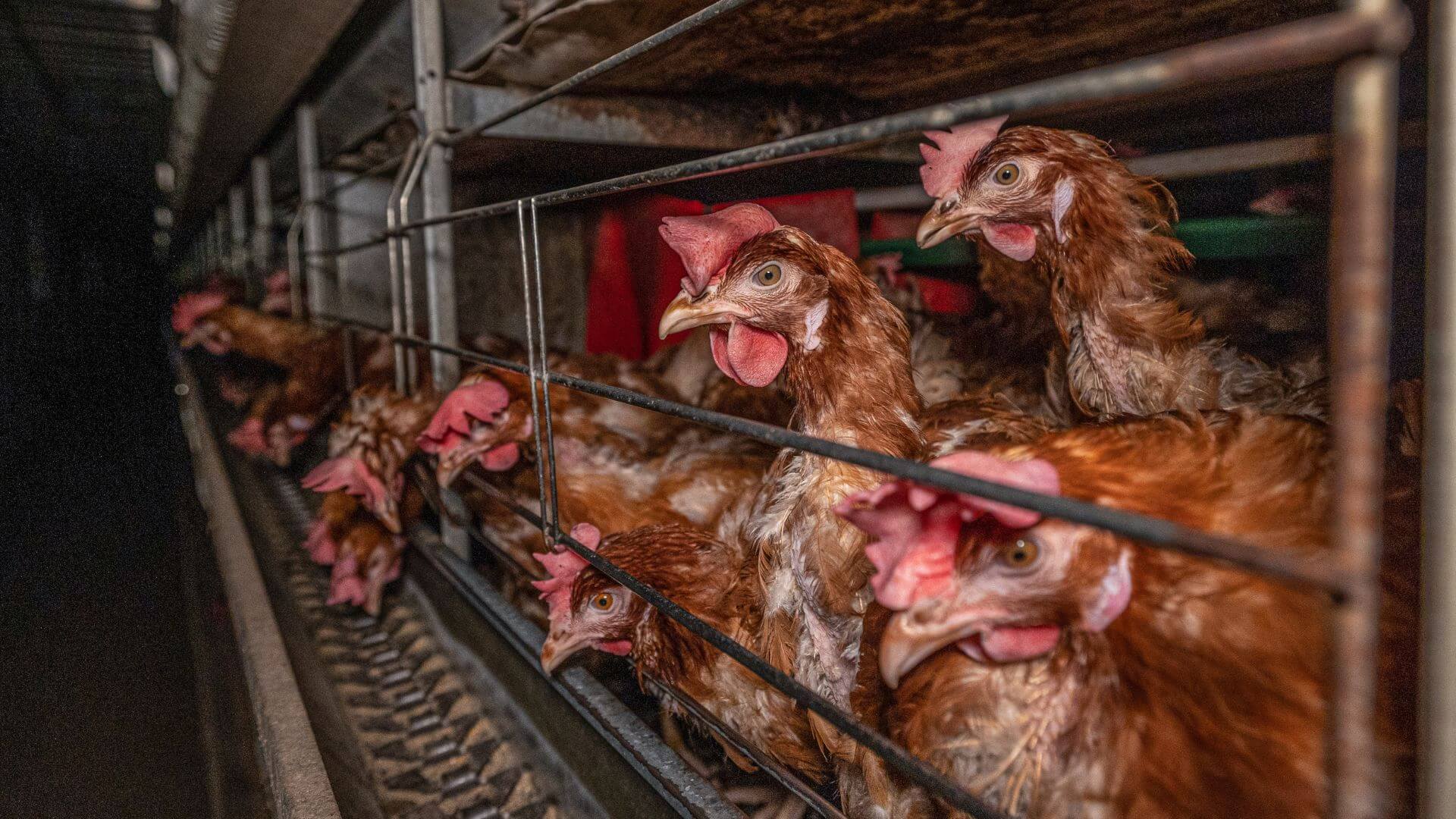A new survey from Bryant Research shows that Canadian consumers want grocery stores to take more action to improve animal welfare and transparency in the food system, especially when it comes to eggs.
Most hens in Canada used for egg production are crammed into tiny metal cages. Tragically, 83% of hens endure the misery of life in a cage—many of them don’t even have enough space to spread their wings.
But there is a huge public demand for change: 80% of people were disappointed to learn that Canada has a worse track record on cages than the US and 72% supported a ban on this confinement.
There was also a consensus among those surveyed that food outlets have a responsibility to increase their offerings of cage-free eggs.
An overwhelming 87% of people believe supermarkets should provide clear information about the types of eggs used in their supply chain, such as signage and labels on the grocery store shelf.
72% of Canadians want to ban cages for egg-laying hens
79% of Canadians want food outlets to stop selling eggs from caged hens
And 79% of respondents firmly believe that grocery stores and restaurants should make a definitive move to stop selling eggs from caged hens altogether. This is a significant shift in consumer preference, but something that supermarkets in Canada unfortunately are not prioritizing.
When it comes to communication channels, 78% of survey participants prefer to learn about animal welfare standards through in-store signage. This underscores the importance of visible, clear, and informative signage in empowering consumers to make choices that align with their values.
Save-On-Foods Leading the Way
Save-On-Foods became the first grocer in North America to introduce in-store egg signage and is a real-world example of how consumer shopping patterns change with clear information. Save-On-Foods has witnessed a remarkable shift, with cage-free eggs accounting for over 43% of their total egg sales.
Loblaw Slow to Go Cage-Free
Yet the largest grocer in Canada is Loblaw, and it lags far behind with only 17% of its egg sales being cage-free. The survey by Bryant Research shows that 79% of Loblaw’s customers support banning caged eggs, and 74% want in-store signage about animal welfare. Despite the clear wishes of its customers, Loblaw only recently started reporting its progress on going cage-free in 2023, and does not provide any in-store signage about its animal welfare commitments, or which eggs are cage-free.
The research is clear: consumers want transparency, and they expect retailers to take concrete action to stamp out some of the worst animal cruelty from their store shelves. In-store signage is not merely an informational tool; it also helps bridge consumer expectations with grocery store offerings, enabling more sustainable and compassionate choices that can help eliminated cruel cages in the egg industry.
Tell Loblaw to Stop Selling Caged Eggs
Supermarkets in Canada have fallen very behind their counterparts in other countries. Canadian retailers are moving very slowly on their cage-free egg commitments, and most of them have completely ignored their promised deadlines to ban these cruel cages.
Loblaw promised to stop selling eggs from hens who suffered in tiny cages by 2025. But now, Canada’s largest grocer is breaking its promise and saying it can’t meet the deadline. And it won’t commit to a new timeline to go 100% cage-free.
It’s unacceptable that a company that makes hundreds of millions of dollars annually is doing so little to protect egg-laying hens from this horrific cruelty. Please join us in asking Loblaws’ new CEO Per Bank to do the right thing and make the grocer cage-free by 2025!
Banner: Andrew Skowron | We Animals Media




